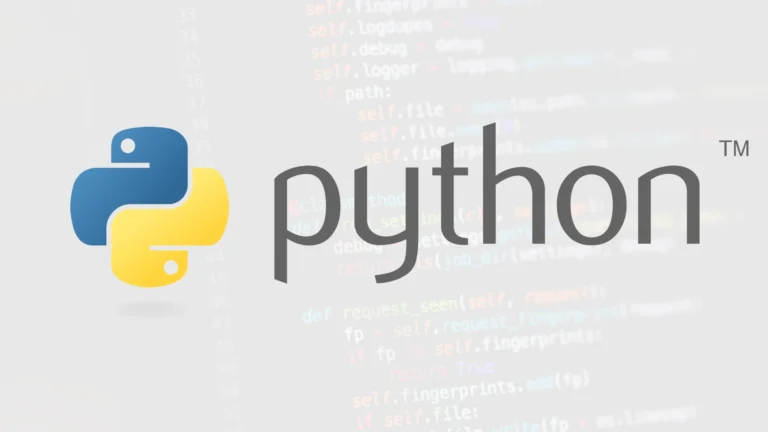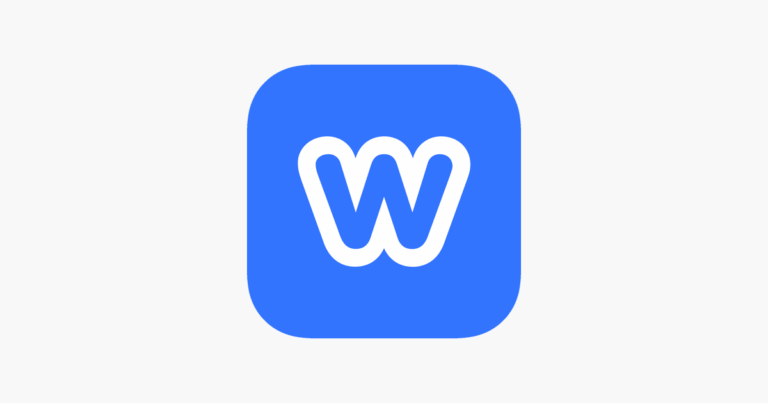
Functional programming offers a different approach to building software compared to traditional methods. It focuses on using functions without changing data or having side effects. When you’re looking for the right language to start with, there are several options like Haskell, Scala, Clojure, and others, each with different strengths.
The most popular functional programming languages include Haskell for pure functional programming, Scala for its industry adoption, and Clojure for its simplicity and JVM integration. Your choice ultimately depends on what you want to build and which ecosystems you’re already familiar with. Some languages are better for data processing while others excel at creating reliable systems that run on multiple computers at once.
1: Haskell
Haskell is a purely functional programming language that many consider ideal for learning functional concepts. When you’re exploring functional programming, Haskell offers a clean introduction to the paradigm.
You’ll find Haskell’s syntax to be clean and simple with minimal noise when expressing functional abstractions. This clarity helps you grasp core concepts without getting lost in syntax details.
Haskell is statically typed, giving you strong safety guarantees. Your programs become more reliable as many errors are caught during compilation rather than at runtime.
One of Haskell’s strengths is how it handles effects explicitly, making it excellent for concurrent programming. You can write parallel code with confidence using GHC, its high-performance compiler.
As a general-purpose language, you can apply Haskell to various domains. However, be aware that compared to some alternatives, it can be somewhat complicated for beginners.
Programs in Haskell are written as mathematical functions, which might feel different if you’re coming from imperative languages. This mathematical approach enforces pure functional thinking.
While some argue that Scheme might be more approachable for beginners, Haskell’s strict functional nature means you’ll learn functional concepts without imperative shortcuts.
2: Scala
Scala stands out as one of the most used functional programming languages in production. This popularity isn’t by accident – Scala offers a powerful combination of features that make it particularly attractive for real-world applications.
When looking for practical functional programming, Scala should be high on your list. It runs on the Java Virtual Machine (JVM), giving you access to the vast ecosystem of Java libraries while enabling functional programming techniques.
What makes Scala special is its hybrid approach. You can combine both functional and object-oriented programming styles in your code, giving you flexibility in how you structure your programs. This means you don’t have to go “all in” on functional concepts right away.
For job prospects, Scala offers compelling advantages. Many companies use it for data processing, web applications, and distributed systems. If you’re looking to apply functional programming professionally, learning Scala could open doors.
Scala is particularly strong for large-scale applications. Its static typing helps catch errors early, while its functional features promote code that’s easier to test and reason about.
The language is also well-suited for students learning functional programming who want marketable skills. Unlike purely academic functional languages, Scala skills translate directly to industry needs.
You’ll find Scala used extensively in big data processing with frameworks like Apache Spark, making it valuable for data engineering roles.
3: Clojure
Clojure stands out as a modern functional programming language that runs on the Java Virtual Machine. It was created by Rich Hickey and first appeared in 2007, giving you access to both functional programming concepts and Java’s extensive ecosystem.
When you work with Clojure, you’ll notice it emphasizes immutable data structures by default, which makes functional programming both performant and efficient. This approach helps you avoid bugs related to state changes.
Clojure offers functions as first-class objects and puts strong emphasis on recursive iteration. These features give you powerful tools to solve problems in a functional way.
You might appreciate Clojure’s pragmatic approach and focus on simplicity. Many developers consider it one of the best languages for learning functional programming while still building practical applications.
The language uses Lisp-like syntax with parentheses, which may look strange at first but becomes intuitive with practice. This syntax enables powerful macros that let you extend the language itself.
Clojure’s interoperability with Java is another significant advantage. You can interact with Java code easily, giving you access to thousands of existing libraries and frameworks.
Many programmers report high productivity when using Clojure. Its focus on mathematical functions rather than procedures helps you write more predictable and testable code.
4: Erlang
Erlang stands out as a functional programming language designed with concurrency in mind. If you’re looking to build reliable, distributed systems, Erlang might be your perfect match.
Created at Ericsson in the late 1980s, Erlang was built to handle telecommunications systems that needed to run without interruption. This focus on reliability makes it excellent for building dependable systems.
The language follows functional programming principles but with a practical twist. While it’s considered functional, Erlang adds powerful features through its actor model for handling concurrent processes.
You’ll find Erlang particularly strong for backend systems that need to scale. Its “let it crash” philosophy, paired with sophisticated supervision trees, means your applications can recover from failures automatically.
One interesting challenge you’ll face is getting your head around purely functional programming where mutability isn’t allowed. This different way of thinking pays off in more predictable code.
The job market looks promising too. Erlang has been rated among the highest-paying programming languages in the US and globally according to Stack Overflow surveys.
You might also be interested in Elixir, a newer language that runs on the Erlang virtual machine with more modern syntax but the same powerful concurrency model.
5: OCaml
OCaml is a powerful functional programming language that offers a unique balance between pure functional programming and practical features. You may find it appealing if you’re looking for a language that combines theoretical elegance with real-world usability.
OCaml provides strong static typing with type inference, which helps catch errors at compile time rather than runtime. You won’t need to explicitly declare types in most cases, as the compiler figures them out automatically.
What makes OCaml stand out is its pragmatic approach. While it embraces functional programming concepts, it also allows for imperative and object-oriented styles when needed for specific programming tasks.
The language excels at string processing and IO operations, making it great for small utilities. You’ll appreciate its efficiency and expressiveness for these common programming tasks.
OCaml 5 brought significant improvements, including multicore support. This update makes the language more viable for concurrent programming needs in today’s multi-core processor environment.
Unlike Haskell, OCaml isn’t a pure functional language. It has unencoded effects, which means you can write effectful code without the abstractions required in pure functional languages.
If you’re new to functional programming, OCaml offers a gentler learning curve than some alternatives. It introduces you to functional programming concepts without requiring you to immediately master advanced category theory.
6: Kotlin
Kotlin has emerged as a powerful option for functional programming while maintaining strong object-oriented roots. This multiplatform language by JetBrains offers a pragmatic approach to functional programming that you might find refreshing.
You’ll appreciate Kotlin’s support for higher-order functions, which let you treat functions as values. This approach enables you to divide your code into small, simple functions and compose them together for cleaner solutions.
Kotlin strikes a balance between paradigms. It’s primarily an imperative/OO language with functional features layered on top, making it more accessible if you’re coming from Java or other OO languages.
The language offers immutable data structures, lambdas, and extension functions that support functional programming styles. These features help you write more concise and expressive code without sacrificing readability.
You can leverage functional programming in Kotlin to create better, cleaner code while maintaining compatibility with existing Java projects. This makes it an excellent choice for gradually introducing functional concepts.
Kotlin may not be as functionally pure as dedicated FP languages. However, its pragmatic blend of paradigms gives you the freedom to use functional techniques where they make sense and object-oriented approaches elsewhere.
7: F#
F# is a mature functional-first programming language that runs on the .NET platform. It’s part of the ML family of languages and offers a blend of functional and object-oriented programming features.
When looking at F# for enterprise applications, you might be pleasantly surprised. It’s been called one of the best enterprise languages due to its open-source nature, cross-platform capabilities, and enterprise-friendly features.
You’ll find F# particularly strong for web applications and domain modeling. The language gives you powerful tools to express complex business logic with less code and fewer bugs.
F# is considered by some to be a “hybrid” language now, similar to Kotlin and modern C# rather than purely functional languages like Haskell. This flexibility can be an advantage when you’re working in mixed environments.
For learning resources, check out F# for Fun and Profit, which many consider one of the best resources available for functional programming in general.
In production environments, F# may not be as widely used as Scala, but its integration with the .NET ecosystem makes it particularly valuable if your organization already uses Microsoft technologies.
If you’re new to programming, F# could be a good choice. It’s described as a nice and mature language with functional principles that can teach you solid programming fundamentals.
8: Elm
Elm is a delightful programming language designed specifically for building reliable web applications. You might find it particularly appealing if you’re new to functional programming, as it offers a gentle introduction to the paradigm.
What makes Elm special is its focus on simplicity and user-friendliness. The language provides fantastic error messages that actually help you understand what went wrong and how to fix it. This makes your development experience significantly less frustrating.
When you work with Elm, you’ll appreciate its strong emphasis on reliability. Your programs won’t experience runtime exceptions once compiled successfully. This gives you confidence that your code will work as expected when deployed.
Elm has a well-designed ecosystem with good documentation and tutorials. This makes it much easier for you to get started and be productive quickly, even if you’re new to functional programming.
The language is quite focused in terms of features and application domain. While this means you won’t use Elm for everything, it excels at what it’s designed for – building frontend web applications.
Many developers recommend Elm as the first functional language to learn because of its beginner-friendly approach. You’ll find the concepts you learn in Elm transferable to other functional languages later.
A key benefit of using Elm is its performance. Your applications will have small asset sizes and quick load times, which your users will certainly appreciate.
9: Elixir
Elixir is often considered one of the most approachable functional programming languages for beginners. You’ll find it provides a gentle introduction to functional concepts without overwhelming you with complexity.
Built on the Erlang virtual machine, Elixir combines functional programming with practical features. You get the benefits of immutability and first-class functions while still having tools to build real-world applications.
Many developers believe Elixir is the best starting point for those new to functional programming. Its syntax is Ruby-inspired and readable, making the transition easier if you come from object-oriented languages.
The language excels at handling concurrency. You can create lightweight processes that communicate with each other, making it perfect for building scalable applications.
Elixir’s pattern matching feature lets you write cleaner, more expressive code. You can destructure complex data with elegant syntax rather than verbose conditional statements.
Unlike stricter functional languages like Haskell, Elixir takes a more pragmatic approach. You won’t find advanced type systems or monads, but you’ll learn fundamental functional concepts that apply across languages.
The Phoenix framework makes web development in Elixir particularly enjoyable. You get impressive performance with less code than many alternatives.
If you’re interested in functional programming with practical applications, Elixir offers an excellent balance. It teaches you functional thinking while letting you build robust systems people actually use.
10: Idris
Idris is a purely-functional programming language with dependent types. It stands out in the functional programming world because of its advanced type system.
When you use Idris, you’re engaging with a language designed specifically for type-driven development. This approach uses types as tools to help construct programs, not just check them after writing.
Idris might not be your best first functional language. It’s considered rather new and experimental with a limited ecosystem compared to more established options.
If you’re coming from Haskell, you’ll find the transition easier since Idris is a lot like Haskell. The familiar syntax and concepts will help you get started quickly.
The language features optional lazy evaluation and a totality checker. These tools help you write more precise, bug-free code.
Despite its experimental status, many developers like Idris for exploring programming with dependent types. It offers a unique playground for advanced type theory concepts.
You’ll find Idris particularly useful for projects where correctness is critical. The powerful type system can prevent entire classes of errors at compile time.
The learning curve is steep, but the rewards can be significant for the right applications.
Advantages of Functional Programming
Functional programming offers significant benefits that can improve your code quality and development experience. These advantages stem from its core principles that make programs more predictable and maintainable.
Immutability and Side-Effect Free Functions
Immutability means once data is created, it cannot be changed. Instead of modifying existing data, you create new data structures with the desired changes. This approach prevents unexpected changes to your variables.
When your functions don’t have side effects, they become more reliable and easier to test. A function without side effects always produces the same output for the same input, regardless of when or where you call it.
This predictability leads to fewer bugs in your code. You won’t encounter those frustrating situations where a variable mysteriously changes elsewhere in your program.
Many developers appreciate how functional programming makes error handling more straightforward. When functions behave consistently, you can more easily isolate and fix issues.
Enhancing Code Reusability
Functional programming promotes breaking down problems into small, focused functions that you can combine like building blocks. This approach creates highly reusable code components.
These smaller functions are:
- Easier to understand – Each function does just one thing
- Simpler to test – You can verify each function independently
- More flexible – You can combine them in different ways
The functional style allows you to write more reliable code that’s easier to decompose and generalize. You’ll spend less time writing redundant code and more time solving actual problems.
Your programs become more concise because functional programming often requires less boilerplate code. This brevity doesn’t sacrifice clarity—functional code can often express intent more directly than imperative approaches.
Key Concepts in Functional Programming
Functional programming is built on several fundamental concepts that make it distinct from other programming paradigms. These concepts form the backbone of how functional languages work and how developers approach problem-solving.
Higher-Order Functions
Higher-order functions are functions that can accept other functions as arguments or return functions as results. This powerful feature allows you to create more flexible and reusable code.
In functional programming, you’ll often use functions like map, filter, and reduce. These higher-order functions let you transform data without writing repetitive code.
For example, instead of writing a loop to transform each element in an array, you can use map:
// Imperative approach
const doubled = [];
for (let i = 0; i < numbers.length; i++) {
doubled.push(numbers[i] * 2);
}
// Functional approach
const doubled = numbers.map(num => num * 2);
Higher-order functions promote cleaner, more modular code and are considered one of the most important concepts in functional programming.
First-Class and Anonymous Functions
First-class functions mean that functions are treated like any other data type. You can assign them to variables, pass them as arguments, and return them from other functions.
This concept is central to functional programming paradigms and enables many powerful patterns.
Anonymous functions (also called lambdas) are functions without names. They’re often used for short operations that don’t need to be reused:
// Named function
function add(a, b) { return a + b; }
// Anonymous function assigned to a variable
const add = (a, b) => a + b;
When working with higher-order functions, anonymous functions are particularly useful:
const adults = people.filter(person => person.age >= 18);
This approach helps you write more concise and expressive code that focuses on the “what” rather than the “how” of your program.
Frequently Asked Questions
Many developers have questions about functional programming languages when deciding which one to learn or use for their projects. These common questions cover everything from beginner-friendly options to real-world applications.
What are the advantages of using a functional programming language?
Functional programming languages offer several key benefits. They typically produce code with fewer bugs because of their emphasis on immutability and pure functions.
These languages excel at concurrent programming and parallel execution, making them well-suited for today’s multi-core processors.
You’ll often find functional code is more concise and readable once you understand the paradigm. This leads to better maintainability in the long run.
Which functional programming language is recommended for beginners?
Scheme is an excellent choice for beginners due to its minimalist syntax and straightforward concepts.
If you’re coming from an object-oriented background, Scala might be ideal as it bridges the gap between functional and object-oriented programming.
Haskell, while having a steeper learning curve, provides a pure functional experience that forces you to think in the functional paradigm from the start.
How do functional programming languages differ from imperative ones?
Functional languages focus on expressions and declarations rather than statements and instructions. They emphasize what to compute, not how to compute it.
In functional programming, functions are first-class citizens that can be passed around like data. This enables powerful abstractions and composition patterns.
State changes are handled differently in functional languages, with an emphasis on transformation rather than mutation. This reduces side effects and makes programs easier to reason about.
Are there any functional programming languages that are particularly well-suited for web development?
Clojure has gained popularity for web development due to ClojureScript, which compiles to JavaScript, and its excellent concurrency model.
Elm offers a pure functional approach to frontend development with a strong type system that eliminates runtime errors.
Scala works well for web development, especially with frameworks like Play and Akka for building scalable and responsive applications.
What are the career prospects for a developer specializing in functional programming languages?
Developers skilled in functional programming often command higher salaries due to the specialized knowledge and the complexity of systems where these languages shine.
Financial services, telecommunications, and high-performance computing sectors particularly value functional programming expertise.
While there may be fewer job postings specifically requesting functional programming skills, the roles that do exist often involve challenging, innovative work on complex systems.
Can functional programming principles be effectively applied in object-oriented programming languages?
Absolutely. Modern object-oriented languages have incorporated many functional features. Java has lambdas and streams, while C# offers LINQ and functional patterns.
You can apply principles like immutability, higher-order functions, and avoiding side effects in any language. This hybrid approach often leads to cleaner, more maintainable code.
Working with functional patterns in familiar languages can be an excellent way to gradually transition your thinking toward the functional paradigm without abandoning your existing codebase.




